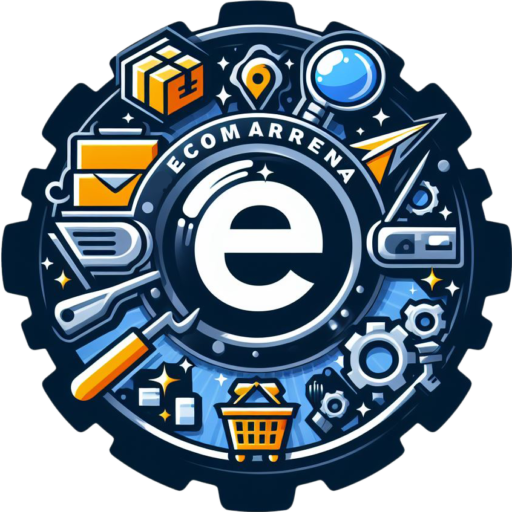If you are an online seller who wants to scale up your business and control your trading environment across multiple channels, you might be wondering which platform to choose: WooCommerce or Linnworks. Both of them are popular and powerful ecommerce platforms that offer a range of features and integrations to help you manage your online sales. But which one is better for your needs and goals?
In this blog, we will compare WooCommerce and Linnworks based on several factors, such as ease of use, functionality, pricing, support, and more. By the end of this blog, you will have a better idea of which platform is more suitable for your online business.
What is WooCommerce?
WooCommerce is an open-source ecommerce plugin for WordPress that allows you to create and customize your own online store. It is one of the most popular ecommerce platforms in the world, powering over 28% of all online stores. WooCommerce is free to use, but you may need to pay for hosting, domain, SSL certificate, and some extensions and themes.
Some of the features and benefits of WooCommerce are:
- It is easy to install and set up, as it integrates seamlessly with WordPress.
- It is flexible and customizable, as it allows you to modify your store’s appearance, functionality, and behavior using thousands of plugins and themes.
- It is scalable and secure, as it can handle large volumes of traffic and transactions, and offers various security options and backups.
- It supports multiple payment gateways, shipping methods, tax calculations, and currencies.
- It provides detailed reports and analytics to help you monitor and improve your store’s performance.
What is Linnworks?
Linnworks is a multi-channel ecommerce platform that helps you automate and optimize your data, inventory, orders, shipping, and reporting across various channels, such as marketplaces, web stores, and social media. It is a cloud-based solution that can be accessed from any device and location. Linnworks offers a 14-day free trial, and then charges a monthly fee based on your order volume and features.
Some of the features and benefits of Linnworks are:
- It is fast and reliable, as it can process over 100 orders per minute and manage millions of SKUs without any loss of service.
- It is comprehensive and intelligent, as it provides you with a single dashboard to manage all your channels and systems, and offers insights and recommendations to help you grow your sales.
- It is compatible and integrable, as it connects with over 100 marketplaces, web stores, payment gateways, accounting software, and logistics providers.
- It is customizable and adaptable, as it allows you to create your own rules, workflows, and templates to suit your business needs and preferences.
- It provides professional support and service, as it offers 24/7 customer support, dedicated account managers, and a supportive community.
WooCommerce vs. Linnworks: Comparison
Now that we have a basic understanding of WooCommerce and Linnworks, let’s compare them based on the following criteria:
- Ease of use: WooCommerce is relatively easy to use, especially if you are familiar with WordPress. However, you may need some technical skills and knowledge to set up and maintain your store, as well as to troubleshoot any issues. Linnworks is also easy to use, as it provides a user-friendly interface and a step-by-step setup wizard. However, you may need some time and training to learn how to use all its features and functions.
- Functionality: WooCommerce offers a lot of functionality, as it allows you to create and customize your store using thousands of plugins and themes. However, some of these plugins and themes may not be compatible or updated, and may affect your store’s performance and security. Linnworks also offers a lot of functionality, as it allows you to automate and optimize your ecommerce processes using its rules engine and insights. However, some of these features may not be available or suitable for your business, and may require additional costs.
- Pricing: WooCommerce is free to use, but you may need to pay for hosting, domain, SSL certificate, and some extensions and themes. The total cost may vary depending on your store’s size and needs, but it can range from $10 to $100 per month. Linnworks offers a 14-day free trial, and then charges a monthly fee based on your order volume and features. The fee starts from $150 per month for up to 1,500 orders, and goes up to $1,500 per month for up to 50,000 orders.
- Support: WooCommerce provides limited support, as it relies mostly on the WordPress community and documentation. You may also get support from the plugin and theme developers, but the quality and responsiveness may vary. Linnworks provides professional support, as it offers 24/7 customer support, dedicated account managers, and a supportive community. You can also access the Linnworks help center, blog, and academy for more resources and guidance.
Conclusion:
As you can see, both WooCommerce and Linnworks have their pros and cons when it comes to selling online. WooCommerce is more suitable for sellers who want more flexibility and customization, and who are comfortable with WordPress. Linnworks is more suitable for sellers who want more automation and optimization, and who sell on multiple channels and platforms.
Ultimately, choosing between these platforms depends on your preferences, goals, and budget. You should do your own research and compare the features and benefits of each platform before making a decision.

